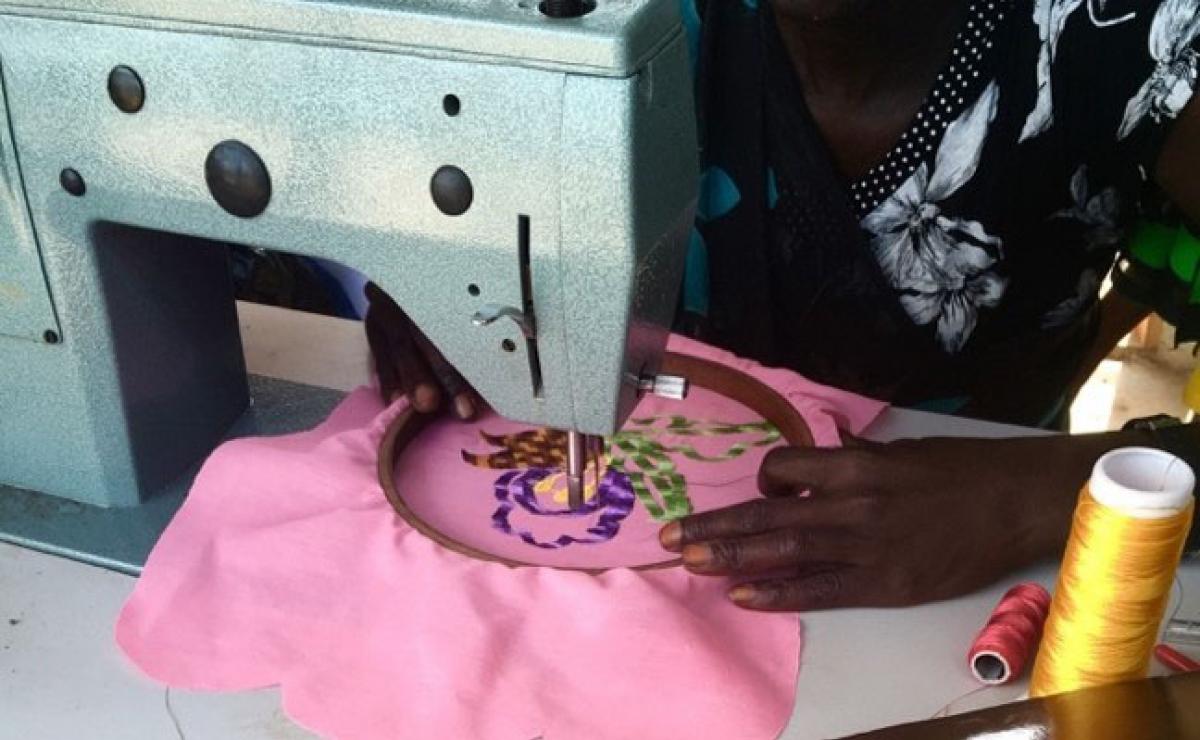Beyond survivorship: How Rose expanded her business

Adjumani District- Rose (whose name was changed for anonymity) is a survivor of gender-based violence (GBV). She is also one of Nyumanzi settlement’s most successful businesswomen who sells high-end clothing from Kampala, Uganda’s capital. Before founding her business, Rose had no prior training in entrepreneurship, but she had acquired business skills by astutely observing other entrepreneurs.
Although her retail store is a business powerhouse in the area, she started small in 2015 with one store doubling as a saloon and a boutique for second-hand clothes.
In 2016, Rose expanded her business after receiving a formal training in business and a cash grant of UGX 1.3 million (USD 382) from the Lutheran World Federation with funds from the Bureau of Population, Migration and Refugees (PRM).
While expanding her business, Rose prioritized trading in high-end clothing as she explains that there was ready market and the profit margin seemed bigger. With a bigger store, Rose is earning more profits than before. She takes home an average of UGX 500,000 (USD 147) per month. Rose has saved UGX 600,000 (USD 176) that she plans to use for her children’s school fees and medical emergencies.
Due to her hard work and success, LWF provided her a business booster grant of UGX 400,000 (USD 118) in June 2017 which she has used to diversify her business by including embroidered and tailored clothing with traditional Dinka styles.
As a sole caretaker of 7 children, Rose describes this business as invaluable: “when my children need something, I can provide for them.”
Rose is one of the many GBV survivors in Adjumani District who were supported by LWF with business training and cash grants to venture and expand their businesses with funds from PRM between July, 2016 and June, 2017. This was aimed at reducing economic stress on female-headed households and to lessen symptoms associated with trauma as beneficiaries channel their energies into new, fruitful projects.

